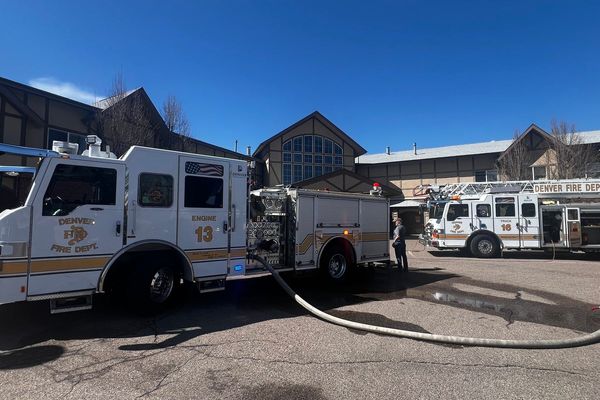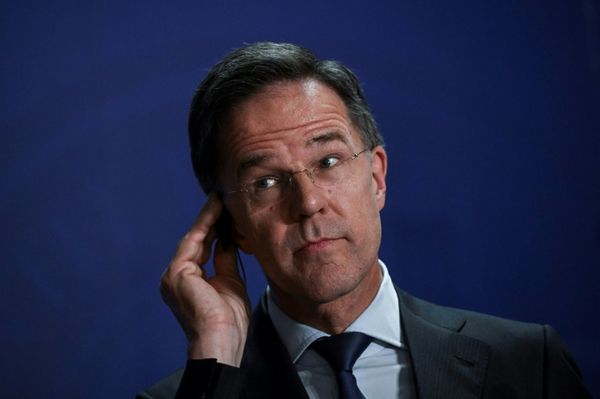
The Uluru Statement from the Heart is a dead letter. In language and spirit, it extended an invitation, which has been unequivocally rejected. Its three-part request — Voice, Treaty, Truth — is now history, along with any real likelihood of reconciliation.
As Bernard Keane explained, the referendum result permanently entrenches the fiction the constitution embedded in Australia’s creation: that there were no First Nations at all. It forecloses any pathway to a meaningful reckoning that brings the pieces of our history together with justice and creates a platform of true equality for the future. It’s hard to see how Treaty and truth don’t go the same way.
With reconciliation dead, our first priority should be to allow Indigenous peoples their grief. The rush we are now seeing from politics and media to paint the Voice’s rejection as anything except racism must be compounding the hurt. It is what it is, they know it because it’s nothing new for them.
What will be new is what comes next. Indigenous Australia will have to accept the reality and determine where to go from here. It seems there are two choices: acquiesce in assimilation, or reject the national construct altogether.
Peter Dutton has made explicit that for the Coalition parties there will be a return to the policy of assimilation, which was the central theme of Australia’s governmental approach to Indigenous affairs from the 1930s to the 1960s and which was implicitly revived in the Northern Territory Intervention imposed by John Howard’s government. (If you’re wondering what the deal was prior to the 1930s, essentially it was a policy of assisted extinction.)
Dutton’s first public statement post-referendum was instructive. He mentioned three items of new business for which he said he will be pushing (nobody asked him about his promise to promote a new referendum on constitutional recognition only, from which he walked away a day later anyway).
First was a “royal commission into child sexual abuse in Indigenous communities”. It was the identical claim that justified the Intervention, a paternalistic top-down policy approach that met the same fate as all previous attempts to manage Indigenous peoples as a “problem” — it failed, at massive expense.
Second was “an audit into spending on Indigenous programs so that we can get the money where it’s needed”.
Third — in response to a reporter’s question on why, after ten years in government, the Coalition doesn’t know where the money is spent already — Dutton offered this:
Jacinta’s got an excellent idea in relation to putting accommodation into some of the schools in the Northern Territory so the kids can get a good night’s sleep, so that they can be fed, so they can be housed safely.
You can never accuse Dutton of being too subtle; he was laying it on here with a trowel. We are back in the landscape of the intractable “Aboriginal problem”: cultural violence, self-inflicted degradation, waste and danger to what he described as “the sanctity of those children”. The blame is placed on Indigenous peoples, whose hopelessness is a perennial given. The platform is seamlessly laid for a new Stolen Generation.
The full list of forms of intergenerational disadvantage lived by Indigenous peoples is extremely long, but Dutton picked out the bits designed to comfort everyone who voted No.
Assimilation means, in Australian terms, fitting in. It requires letting go of any claim to special treatment or consideration, but more importantly it demands erasure of the facts that might justify that consideration — whether past, such as the acts and effects of colonial dispossession and genocide, or present, like everyday racial discrimination and vilification. That’s the price of admission.
Dutton has placed this card face up, and what will come with it is an end to the polite pretence of caring.
For Indigenous peoples, then, option one is to give up and get along. Forget about the past and the present, just look to the future and its promise that one day we really will all be as colour-blind as Pauline Hanson insists we are today. Head down, work hard, don’t talk about the unpleasantness and you, like Warren and Jacinta, can take your place at the big table where everyone is equal.
Option two can be seen in these terms: the constitution isn’t changing, so Australia will remain legally and institutionally fixed in the framework of 1901. It didn’t include Indigenous peoples then, so it doesn’t now — and, to be clear, the only change that the 1967 referendum made were to (a) include Indigenous peoples in the census and (b) take law-making power over them from the states and give it to the Commonwealth.
The question then is: why recognise a legal structure that doesn’t recognise you? The status quo consists of the colonisation that began in 1788, formalised by the constitution of 1901. Indigenous peoples played no role in either, and have never agreed to them. It remains open to them to reject the whole thing.
That is essentially what the Blak Sovereignty movement contends for: an overt opting-out from the whole notion of Australia, by the descendants of the people who were here first.
We can debate the practicality of that. However, we have also just told Indigenous peoples that their wish to be heard is a non-starter, and left them with two other choices. Assimilation didn’t succeed before, despite decades of assiduous effort, for the same reasons it won’t succeed now.
As for rejection — for saying to Australia thanks but no thanks, I’m out — if I was Indigenous I’m not sure whether I’d see any real alternative at this point.







